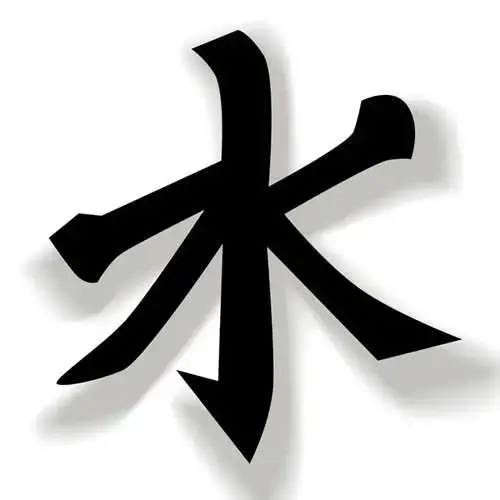Daoism and Confucianism
 |
| Confucius |
Introduction
In 255 BCE, the Zhou Dynasty would reach it's end due to the Period of Warring States, where the country of China was ravaged by constant feudal warfare, ruined crops, armies and conquest, and the suffering of the peasants.
By the end of the Zhou Dynasty, history would "see the appearance of many new social philosophies, all of them seeking to be a blueprint for the right ordering of society and government. That was a natural response to the turmoil of the times" (Bresnan 304).
Because of this, the Period of Warring States would also be known as the Period of a Hundred Philosophies.
Two that were mentioned in Patrick Bresnan's Awakening: An Introduction to the History of Eastern Thought were Confucianism and Daoism (also known as Taoism) with Confucianism being one of the earlier schools founded by Confucius.
After reading both chapters on Confucianism and Daoism, there were specific questions about Confucius from the book that caught my attention.
Confucianism
In the beginning of Confucianism, the chapter begins with the following statement: "Confucius gave to Chinese civilization a grand ideal for the ordering of society" (Bresnan 301).
 |
| One of the three symbols representing Confucianism |
To Confucius, this was his vision of what the right social order should be like and these ideals "became a model that has inspired Chinese social thinking through the ages" (Bresnan 301).
In a way, I do agree with Confucius' grand ideal because it represents the correct and respectful way to treat society, ethics, and the environment around it.
Without this, China wouldn't have any harmony between human civilization and the laws of natural order as there would still be chaos from selfish interests.
Below is a video about the basics of Confucianism:
Daoism
One interesting story of the Daoist tradition was a meeting between a young Confucius and Lao Zi, who presumably was an old man.
After this meeting, Confucius met with the disciples traveling with him at the time and told them, "Don't have anything to do with that man. He is a very dangerous one!" (Bresnan 336).
:max_bytes(150000):strip_icc():format(webp)/laozilaotzu-56afcaa25f9b58b7d01d19c5.jpg)
Lao Zi
Although there are many possibilities of what the meaning of this phrase is, one possibility I believe it could be is that Lao Zi had the knowledge of ancient Chinese traditions, history, and culture from his time working as a "minor bureaucrat in the government of Zhou, possibly as a keeper of historical records in the royal library system" (Bresnan 336).
:max_bytes(150000):strip_icc():format(webp)/laozilaotzu-56afcaa25f9b58b7d01d19c5.jpg)
By gaining lifelong access to these ancient Chinese traditions, if Lao Zi were to spread this all throughout China then there could be a possibility that some people can use this to their advantage for their own selfish purposes.
From reading these two chapters, Confucius and Lao Zi were two of the many contributing factors that led to the teachings of Confucianism and Daoism.
Below is a video on 10 life lessons from Lao Zi:
Works Cited:
Bresnan, Patrick S. Awakening: An Introduction to the History of Eastern Thought, 6th ed.,
Routledge, 2018.
Confucianism Symbol. "Confucianism Symbol." Ancient Symbols, 2018, https://www.ancient-
symbols.com/symbols-directory/confucianism-symbol.html. Accessed 1 Nov. 2021.
Philosophies for Life. "10 life Lessons From the Taoist Master Lao Tzu (Taoism)." Youtube, 11, Aug.
2019, https://www.youtube.com/watch?v=NtcgJ1yZkIc. Accessed 1 Nov. 2021.
Quitana, Armando. "25 Confucius Quotes That Will Inspire You to Live the Best Life Possible." Addicted
to Success, 18 Aug. 2018, https://addicted2success.com/quotes/25-confucius-quotes-that-will-inspire-
you-to-live-the-best-life-possible/. Accessed 1 Nov. 2021.
Reninger, Elizabeth. “Laozi, the Founder of Taoism.” Learn Religions, Learn Religions, 4 Apr. 2019,
https://www.learnreligions.com/laozi-the-founder-of-taoism-3182933. Accessed 1 Nov. 2021.
Stephanie Gorges. "Confucianism: The Basics." Youtube, 11, Sep. 2019. https://www.youtube.com/watch?
v=ixu4Kd5R1DI. Accessed 1 Nov. 2021.

Comments
Post a Comment